You are thinking of taking a gap year, but the idea of it is daunting. The year between high school and college can feel like chaos away from the structure you’re used to, an entire year where you have the potential to choose what you want to do. It’s exciting, and it’s scary.
Time off to learn about yourself and to prepare for your next steps is an incredible opportunity, but it’s not necessarily easy. You may feel pressure from your friends and family to know exactly who you are and what you will study or choose as a career. But, my friends, I’m here to tell you that it is okay if you have no idea! An adventure with Outward Bound, however, is a fantastic place to start.
At Outward Bound, we like to use the words “challenge” and “discovery” when describing our trips. They make a fine duo, because without challenge, there would be no discovery. Without an intense experience, there is no intense learning. So if a gap year is about discovering your place in the world, a rigorous Outward Bound semester course fits the bill. Semester courses range anywhere from 50 to 85 days, and provide students an opportunity to explore more, grow further and get a chance to reach goals that they wouldn’t be able to on a shorter 15-day course, for example. Read on to learn about the six reasons why you should consider a gap year with Outward Bound.
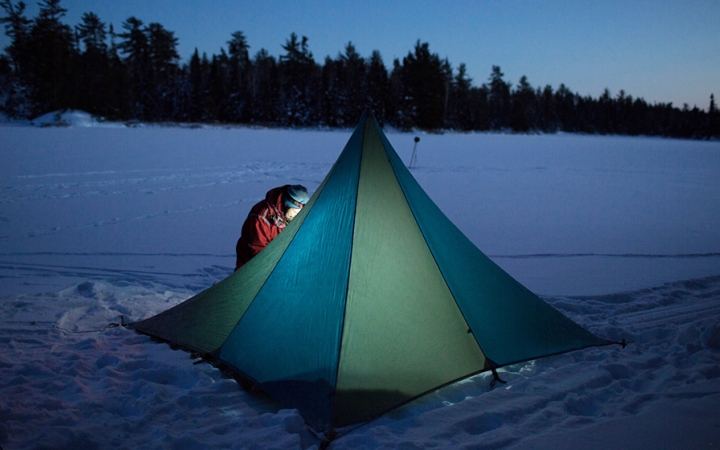
Photo taken on a Boundary Waters Dog Sledding & Texas Big Bend Leadership Semester by Larry Mishkar.
#1 Get Out
Whether it’s in your home state or a faraway country, Outward Bound semester courses take you to magnificent and invigorating new environments. Imagine being able to look up and see for miles at the top of a snowy peak in Alaska, or look down and see into a narrow slot canyon in the Utah desert. Maybe you’ll end up steering a sled pulled by five eager huskies in the Boundary Waters, or navigating a 30-foot sailboat in the Bahamas. From Maine to Colorado, Ecuador and India, Outward Bound has a huge selection of incredible courses that span the globe.

Photo taken on a Patagonia to Florida & Blue Ridge Mountains Leadership Semester.
#2 Get Comfortable with Being Uncomfortable
Completing a semester course in the backcountry is no easy task. It is common to find blisters on your feet, deal with your stuff getting wet from the rain, or hiking long before the sun even rises. There will be days where all you want is comfort and familiarity. You’ll crave cheeseburgers, your own bed and a hot shower.
Long days, achy muscles and physical challenges oftentimes leave students feeling doubtful of themselves. But it is here — the place where students meet their limits — that they will begin to learn that they can do much more than they thought they could. Semester course Instructor, Ashley Saupe, adds:
“There is negative self talk. There are endless perceived limits. I’ve worked for the Colorado Outward Bound School in Colorado and Alaska for the last eight years of my life and let me tell you, every single student I have worked with has blown through their perceived limits in ways that have very much surprised them.”
By course’s end, students will realize that the challenges they face on course are integral to their growth.

Students on the Maine to Bahamas Environmental Semester course find tranquility on the water.
#3 Seek Reflection
Many students embark on a semester course with the intention to learn more about themselves. The time for reflection is a critical ingredient for an Outward Bound course. It turns out, the wilderness is an incredible place free of screens, media and other distractions; so it becomes easier to think clearly and reflect on those big questions you might have during a gap year.
Students on all Outward Bound courses routinely check in with their Instructors about their personal course goals. Because semester courses are longer, you get to set larger goals and work to achieve them with support from your Instructor team. You’ll also have the opportunity to do a Solo, which is an extended time where you get to be alone with your thoughts and a journal. On “Solos” you have nothing else but time and solitude to reflect on what you have learned and what you will take away from your backcountry experience.
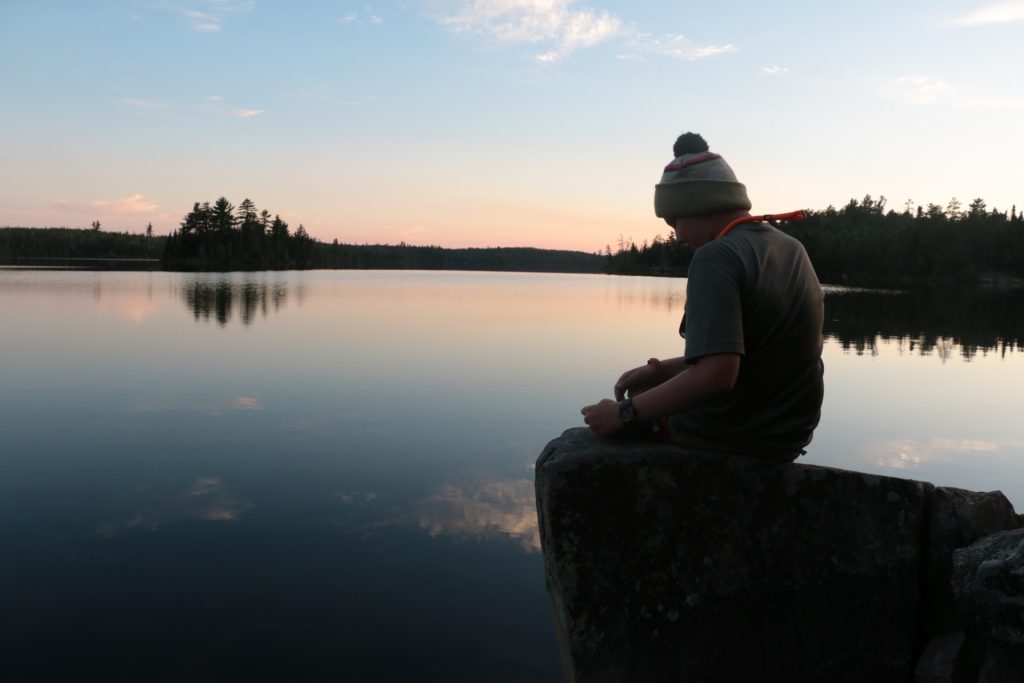
Solo provides an important time for reflection.
#4 Foster New Friendships
Let us not forget that Outward Bound courses are fueled by people. A capable Instructor team and a band of spirited students all play a part in running a successful course. Each individual contributes their hard work to meet group goals while also adding a unique flavor to the group dynamics. It’s almost like making a stir-fry from whatever ingredients are available, because no two courses are the same.
Your teammates are people who travel together, summit peaks together and brush their teeth together. They confront challenges, discomfort and newness together. These experiences are the “adhesive” that make Outward Bound groups bond. There are often tearful goodbyes at the end of each course, but many students stay in touch and become friends for life.
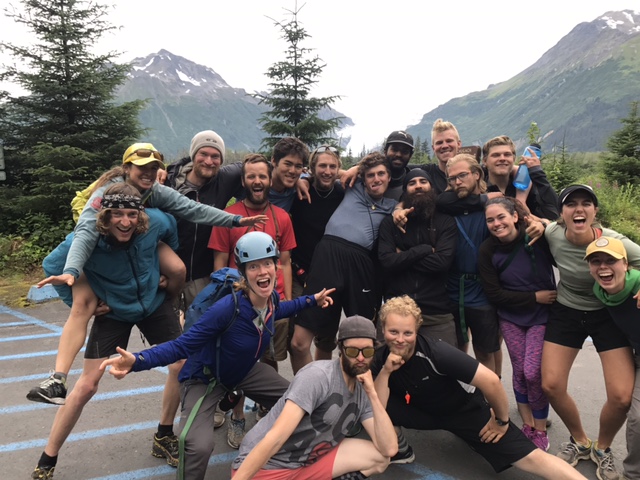
Students are shown getting silly nearing the end of their Rockies to Alaska Leadership Semester course, courtesy of Ashley Saupe.
#5 Learn to Lead
Have you ever navigated a group through the backcountry using a map and compass? Or planned a full-day travel itinerary? What about making quick decisions if the weather turns? These are opportunities that will happen on any Outward Bound course, however on semester courses you’ll get even more practice. You will get to be “leader of the day” multiple times, where you’ll have the responsibility to step into your Instructors’ shoes and practice making decisions for your group as you travel through the wilderness. At the end of the day, you’ll receive feedback that will help you become a better, more effective leader for the next time.
You will soon realize that the more you lead, the more you feel competent. The more you speak up when your voice is needed, the more you feel confident. The challenges your group will face throughout your course are invitations to try on different leadership styles and pick the one that works best for you.
Ashley says, “Taking a semester course teaches you how to be self sufficient while at the same time, teaches you how to depend on your teammates. Just like the huge world we live in, we all depend on each other. But to depend on each other, you need to be dependable. This is a huge part of what a student learns.”
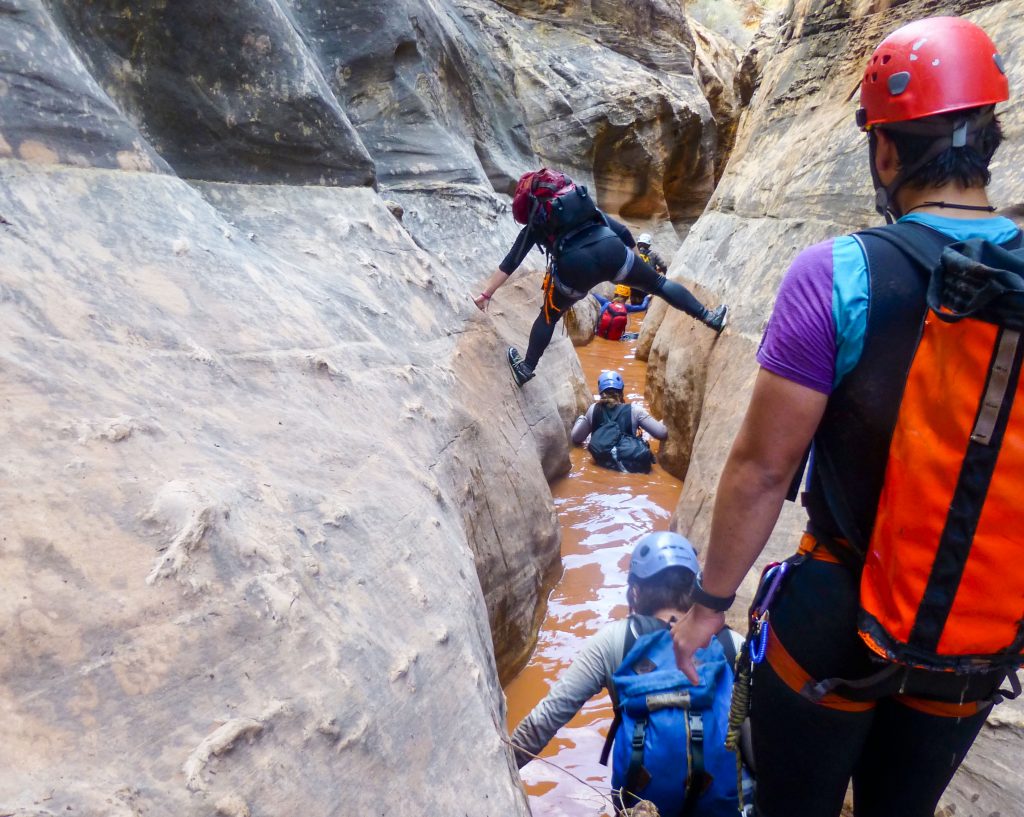
Photo taken on a Southwest Leadership Semester expedition by Peter O’Neil.
#6 Realize Your Impact
A word that you will hear many times on your course is “service.” After all, this is one of Outward Bound’s three educational outcomes. The act of service takes many different forms on an Outward Bound course, but you will find that it all boils down to service to others and service to the environment. Every course integrates a service component, where you can work closely with land management organizations, or even nursing homes and hospitals. These projects not only activate the local community you’re serving, but they also get you to work on projects you wouldn’t normally work on and meet individuals you wouldn’t normally meet.
Another major component to service is environmental stewardship. Throughout your course, you will learn and practice the Leave No Trace (LNT) principles that govern how Outward Bound courses respectfully interact with the landscapes they travel through.
Having these opportunities to serve fosters a sense of connection and ownership in students. Whether it’s practicing LNT or rebuilding a damaged trail, you will find that your time and effort are important, and you are capable of positively impacting the world around you.
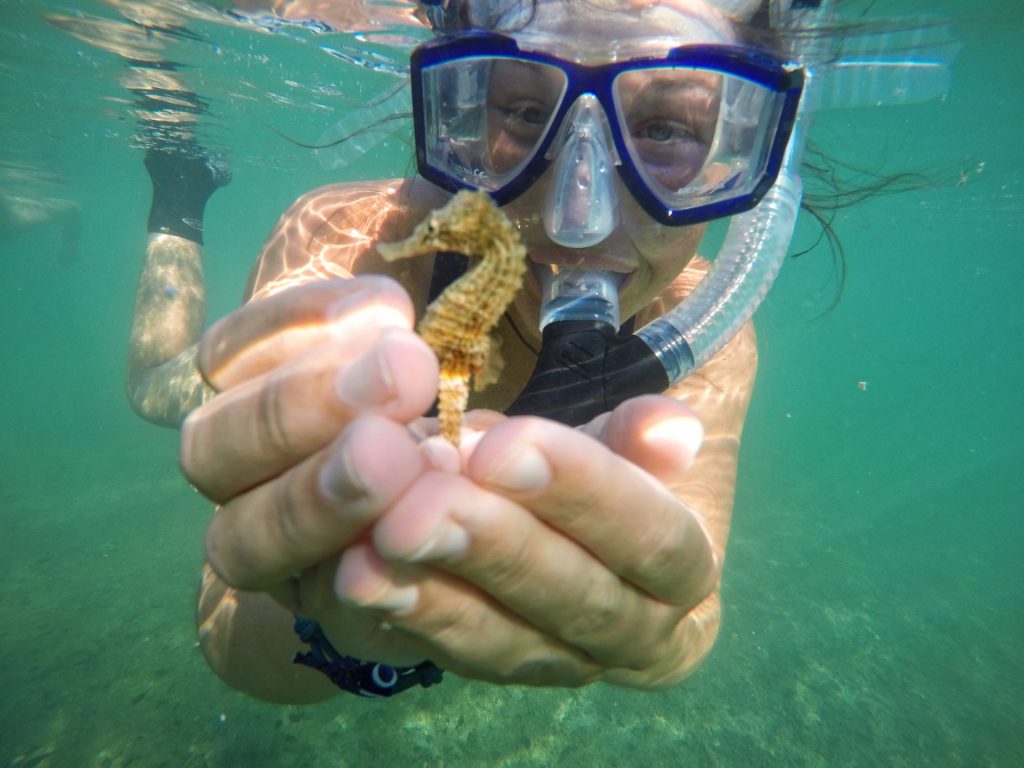
Student exploring under the sea during her Maine to Bahamas Semester course.
What’s Your Challenge and Discovery?
These six reasons help to explain the theory behind why semester courses are great for gap years, but you won’t know the true significance of an Outward Bound course until you go experience it yourself. With all this talk about learning about yourself and finding out what you want to do, the bottom line is that Outward Bound changes lives. So my question for you is: at the end of your gap year, what stories do you want to be able to tell?
About the Author
Eva Johnson has worked at the Colorado Outward Bound School (COBS) for two years as a Field Intern and Logistics Coordinator. She’s a Colorado native and if she’s not in Leadville working at COBS, she’s probably adventuring in South America, surfing on the rugged Oregon coast or teaching kids to climb rocks.




